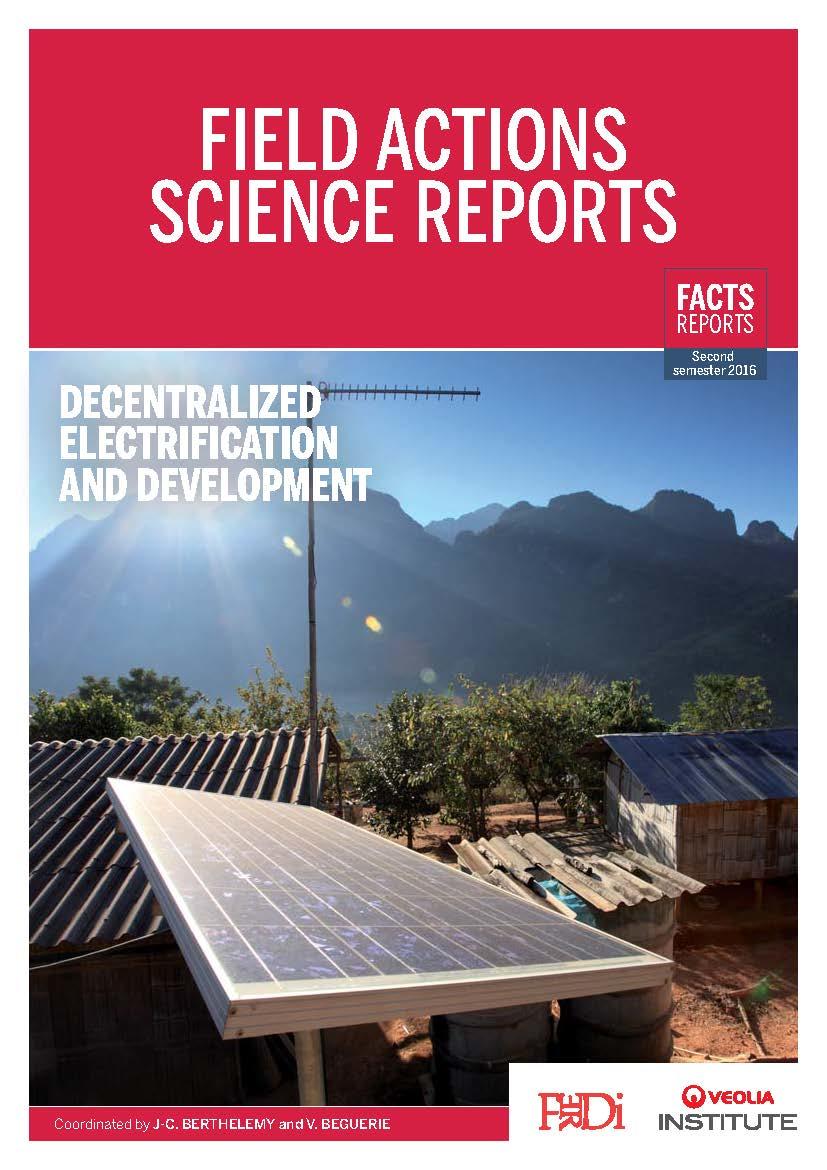
► Preface

This isue of FACTS deals with a social and technological revolution that is still in its early days: decentralized energy in developing countries. The full impact of this revolution is yet to be determined, but it is sure to be profound. In a conservative scenario, which would already represent a great success, this revolution would ba a phase of acceleration towards the centralized model of industrial countries. In a more optimistic scenario, the revolution would create (notably in Africa, which is the ideal region for such) a new energetic model that is the complete opposite of centralized models. And taking the scenario to its extreme, the revolution would spread to industrialized countries, thus becoming a new example of "reverse innovation".
► Foreword
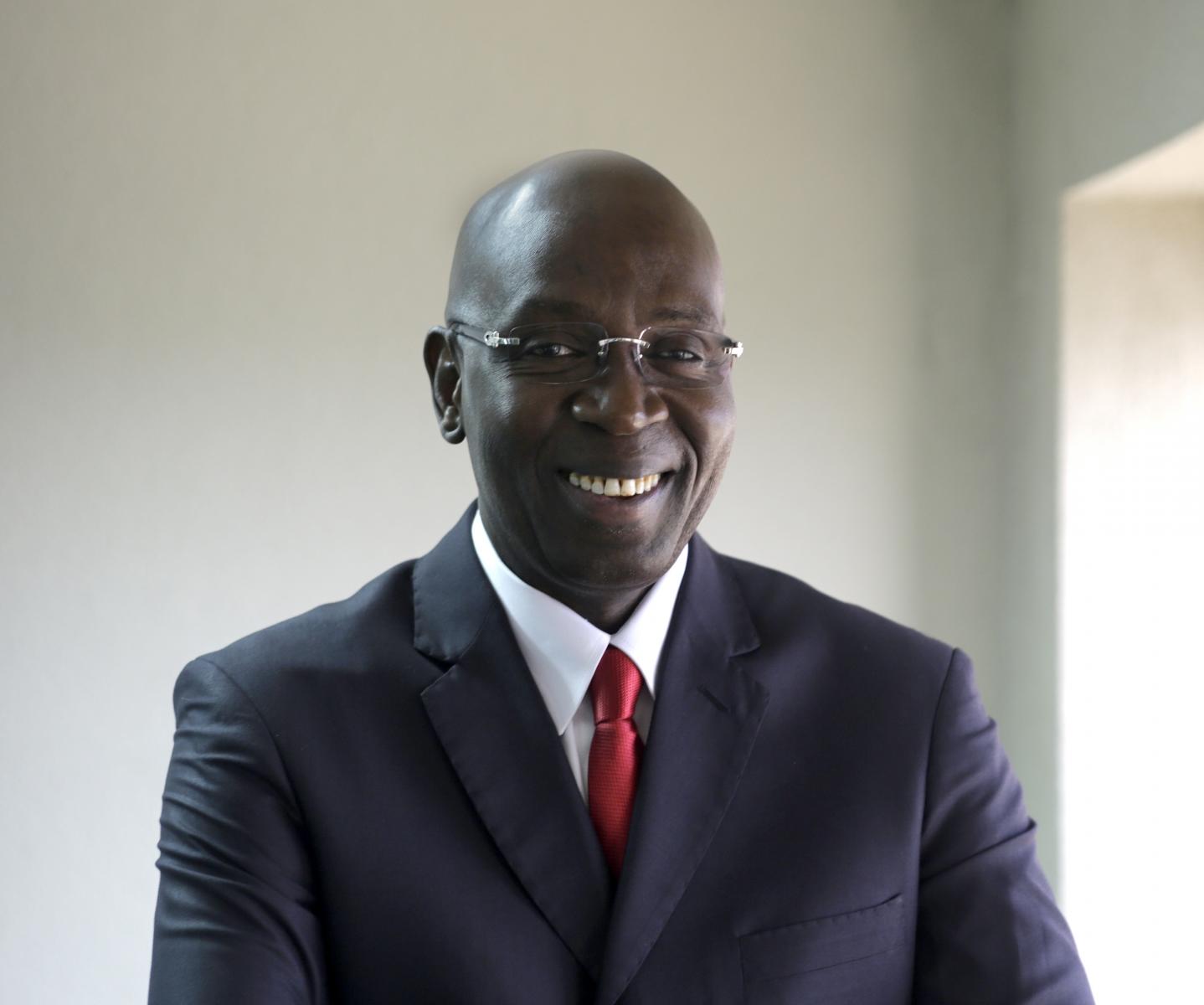
"We will make electricity so cheap that only the reach will burn candles". Although Thomas Edison's famous 1887 boast turned out to be prophetic for the western world, there is no avoiding the fact that it still does not apply to developing countries, most notably in sub-Saharan Africa. Here, access to electricity is a luxury, with an overall penetration rate of 32%, falling to just 17% in rural areas, and electricity prices are often very high. In the face of the twin barriers of cost and availability, most households still rely on energy solutions such as firewood, candles, kerosene lanterns and battery lanterns that are time-consuming in terms of gathering fuel, unreliable, and destructive of the environment and users' health.
"The development of renewables-based off-grid electrification solutions would appear to be the only viable solution in the near to medium term if electrification is to gradually stop being an often unaffordable luxury for African consumers".
► Introduction - Decentralized electrification and development: initial assessment of recent projects

This special issue of FACTS Reports on decentralized electrification does not claim to offer any definitive answers to the - perfectly legitimate questions of the appropriateness of developing decentralized electrification projects. It does, however, show that many solutions have emerged that are capable of tackling the problems encountered, particularly for increasing uptake of individual solar solutions, but also for setting up more ambitious projects such as mini-grids. There are still many practical obstacles to overcome, technical and economic, financial and organizational, and this is something that the growing volume of experience feedback, such as presented here, should help to resolve.
► Mini-grids: it is essential to adapt to local technical and economic constraints
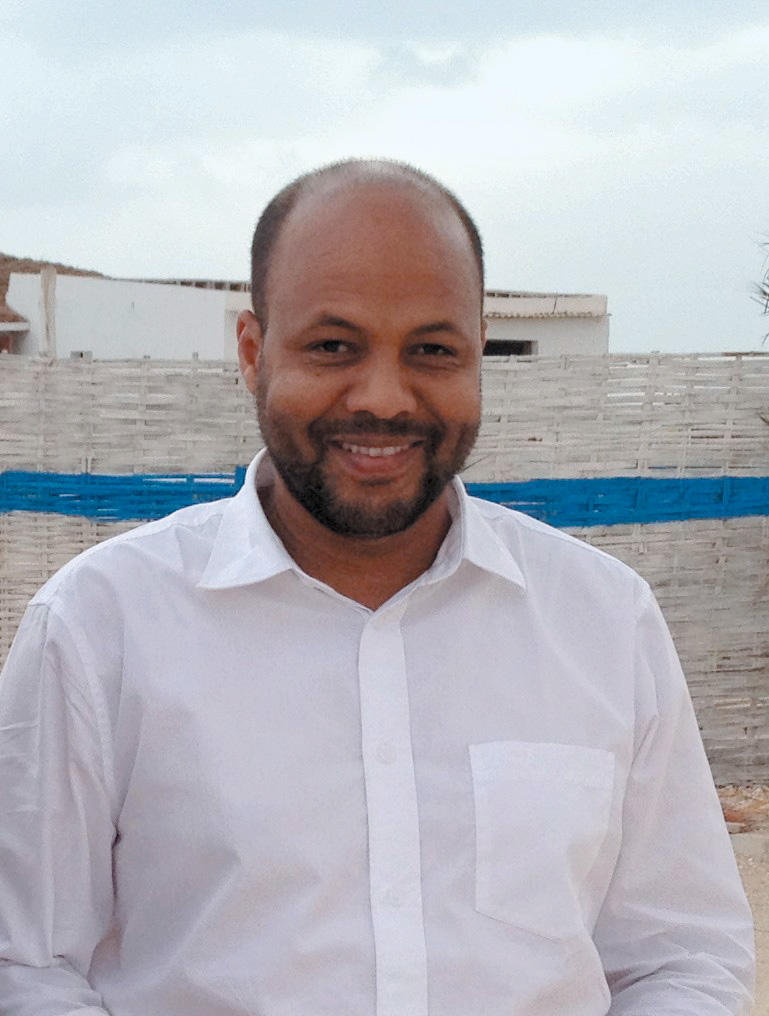
CDS: A case of autonomous water and energy networks
Abstract: For almost 10 years, CDS has been operating water and electricity off-grid networks in remote villages in Mauritania. Chosen by the authorities through several calls for tender, CDS operates and maintains the infrastructure, as well as invoicing and collection from customers. This approach will make it possible to foster rigorous and experienced national operators liable to play a growing role in the professionalization of the sector.
Keywords: Access to electricity, access to water, utility outsourcing, autonomous networks
Themes: Decentralized electrification and mini-grids
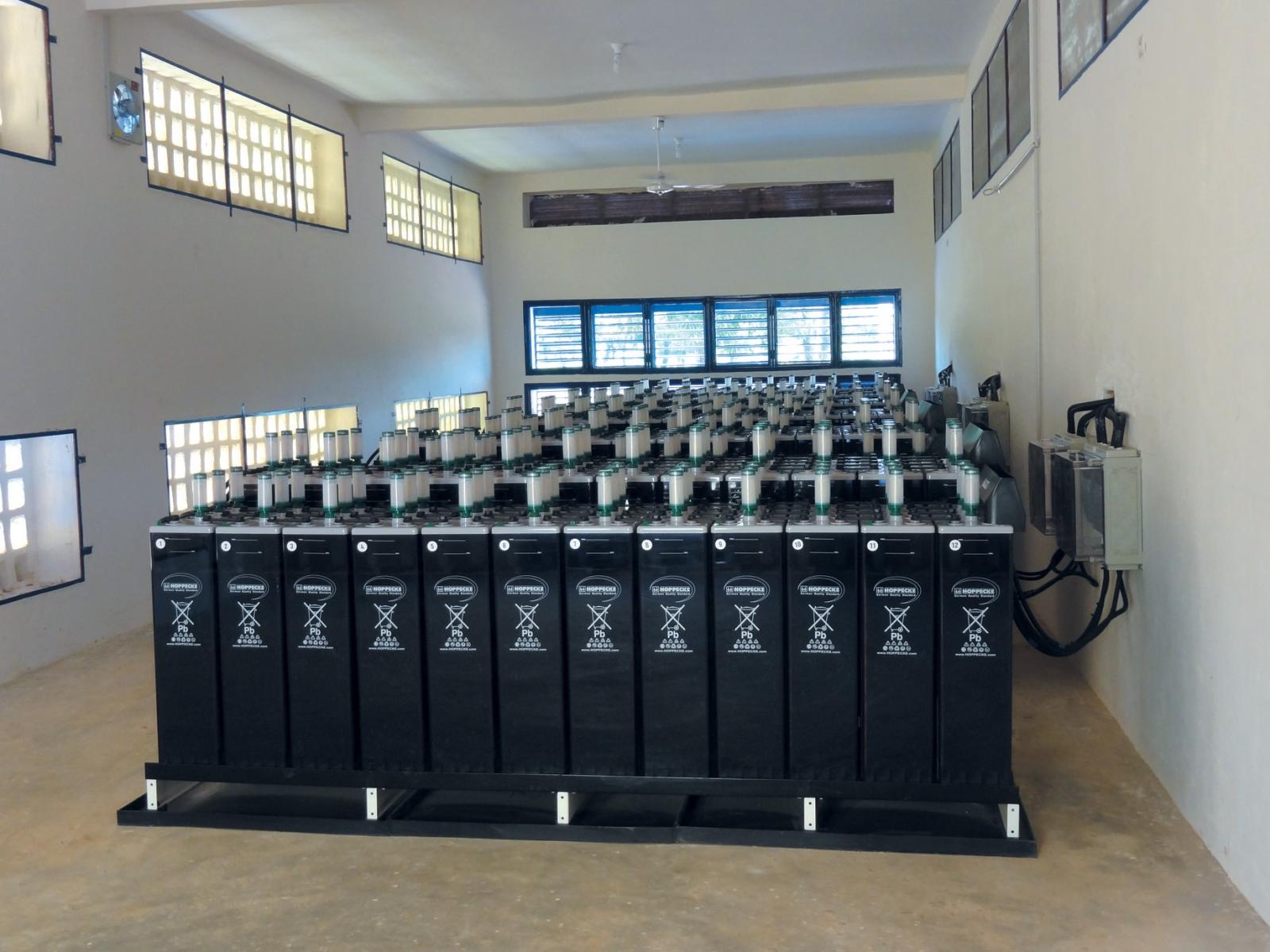
Can rural electrification stimulate the local economy?
Abstract: Providing rural electrification with solar solution to small businesses requires a specific design adapted toward their equipment and the impact of the use of their equipment on an isolated mini-grid has to be diagnosed and assessed before providing a localized solution to meet their consumption needs. Therefore, the need for an Electrified Activities Zone (ZAE) that is complementary to the existing solution for household electrification.
keywords : Rural electrification, business, solar, mini-grid, activities zone
Themes: rural electrification and local economy
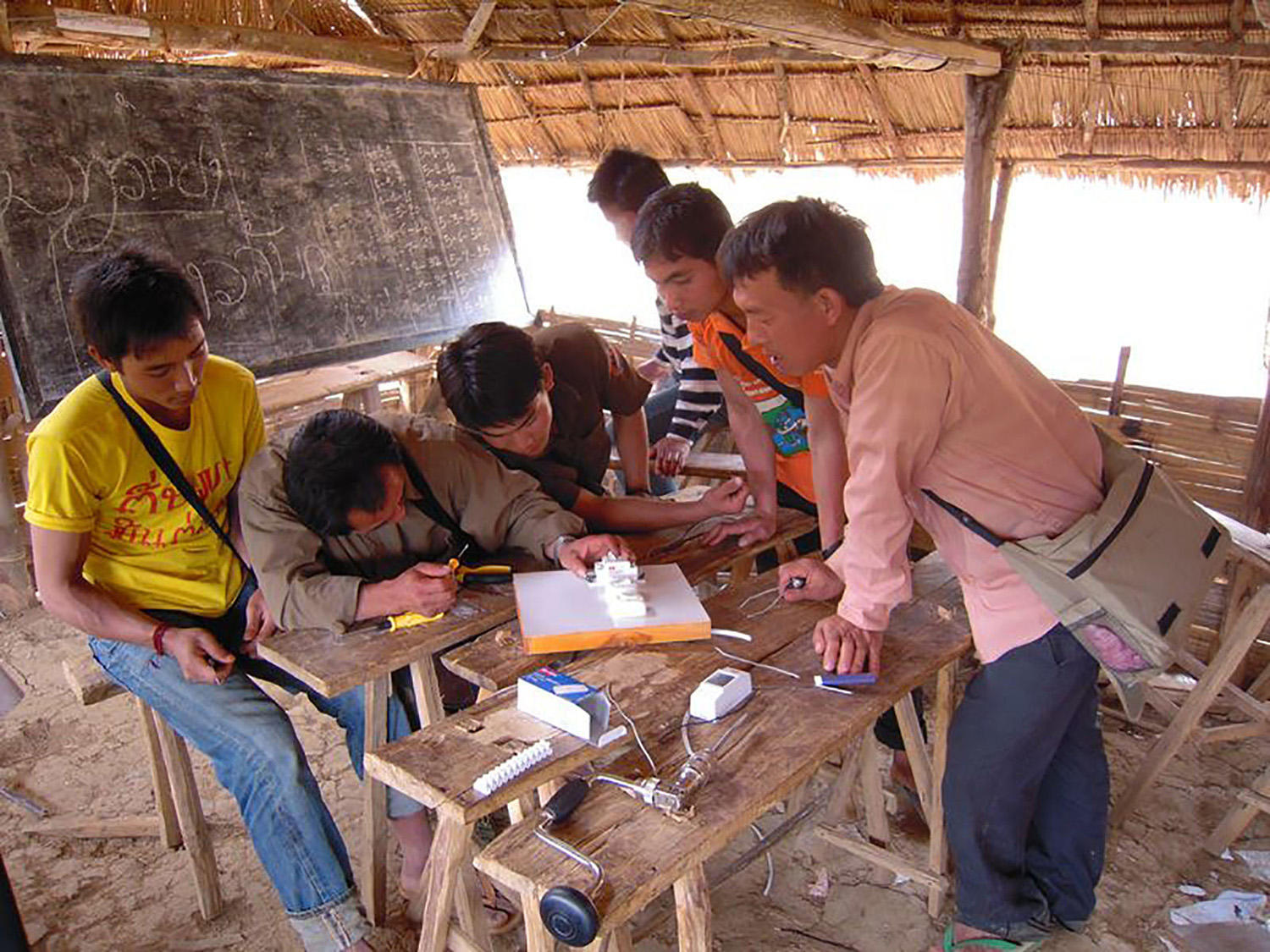
Pico hydro turbines for electricity in rural areas
Abstract: This article discusses the feedback and lessons learned, particularly from a survey carried out following the deployment program of a pico hydro power solution in a very isolated rural area in North Laos. This project is part of the strategic development for the rural electrification of Laos, in which pico hydro power facilities constitute the main avenue of progress for the electrification of isolated villages.
Keywords: Loas, hydroelectricity, pico hydro turbines, electrification, development
Themes : rural electrification and pico turbines
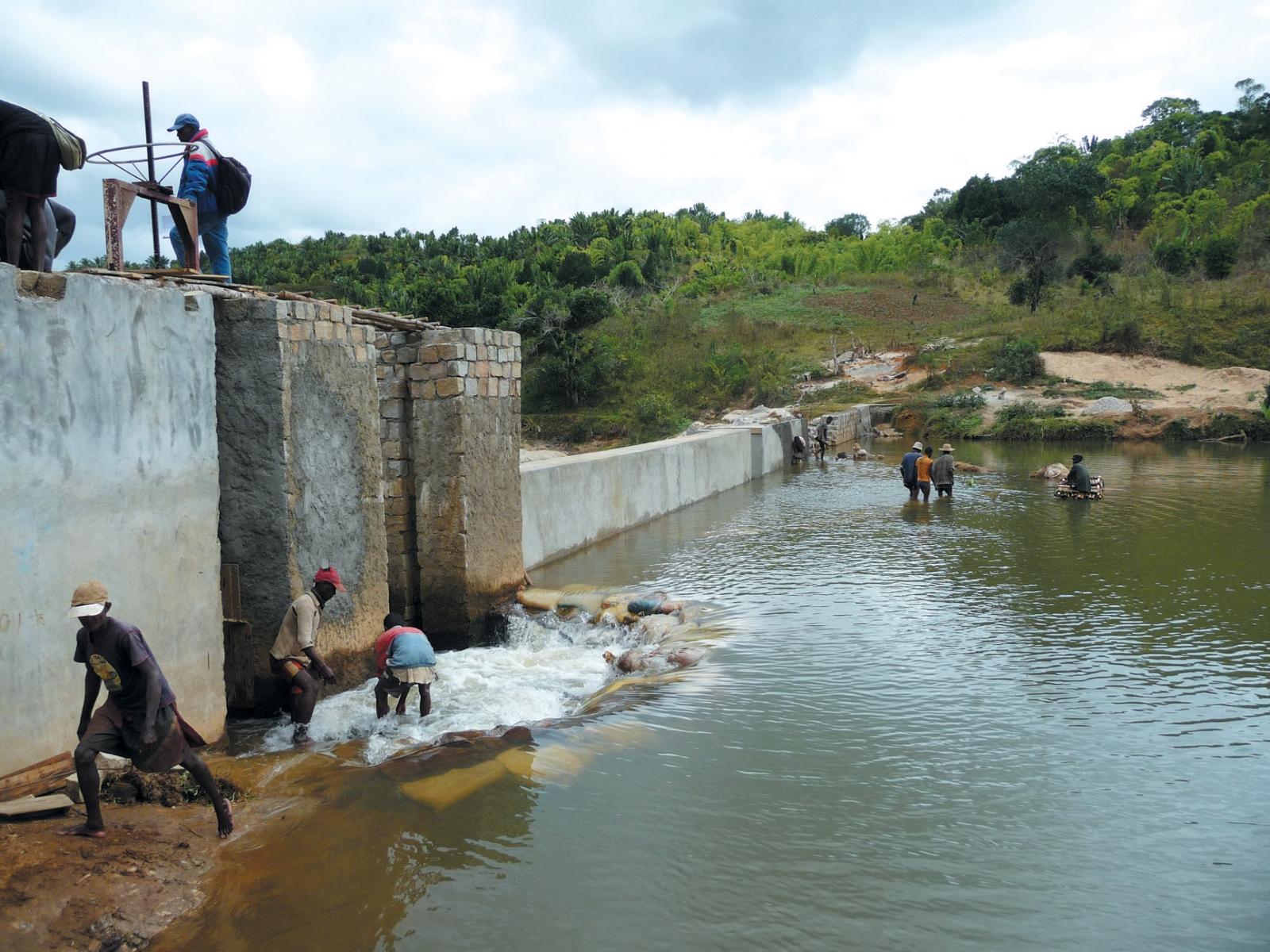
What coalitions of stakeholders to electrify Madagascar?
Abstract: This article analyzes the successes and limits of the Rhyviere hydro power project in Madagascar and raises questions about the role of stakeholders in building an effective and sustainable rural electrification model. By promoting a delegation model based on strong institutions capable of playing their part, this experience demonstrates that civil society organizations have a role to play in building fair and balanced coalitions of stakeholders.
Keywords: Access to energy, coalition of stakeholders, rural electrification, public private partnership, public service
Themes: Stakeholder coalition and electrification

Solar power integration on the Seychelles islands
Abstract: The Seychelles aim to cover 5% of electricity with renewables by 2020 and 15% by 2030. The local power system operator commissioned a Grid Absorbtion Study to determine the technical limits for reaching these targets. The study focusses on how much photovoltaic (PV) generation the grid can absorb. As result, the primary bottleneck was found to be the maintenance of backup generation reserves to compensate for fast down-ramping of PV generation.
Keywords: Electricity supply, island systems, solar power, integtation limits
Themes: Integration of solar power to central grid
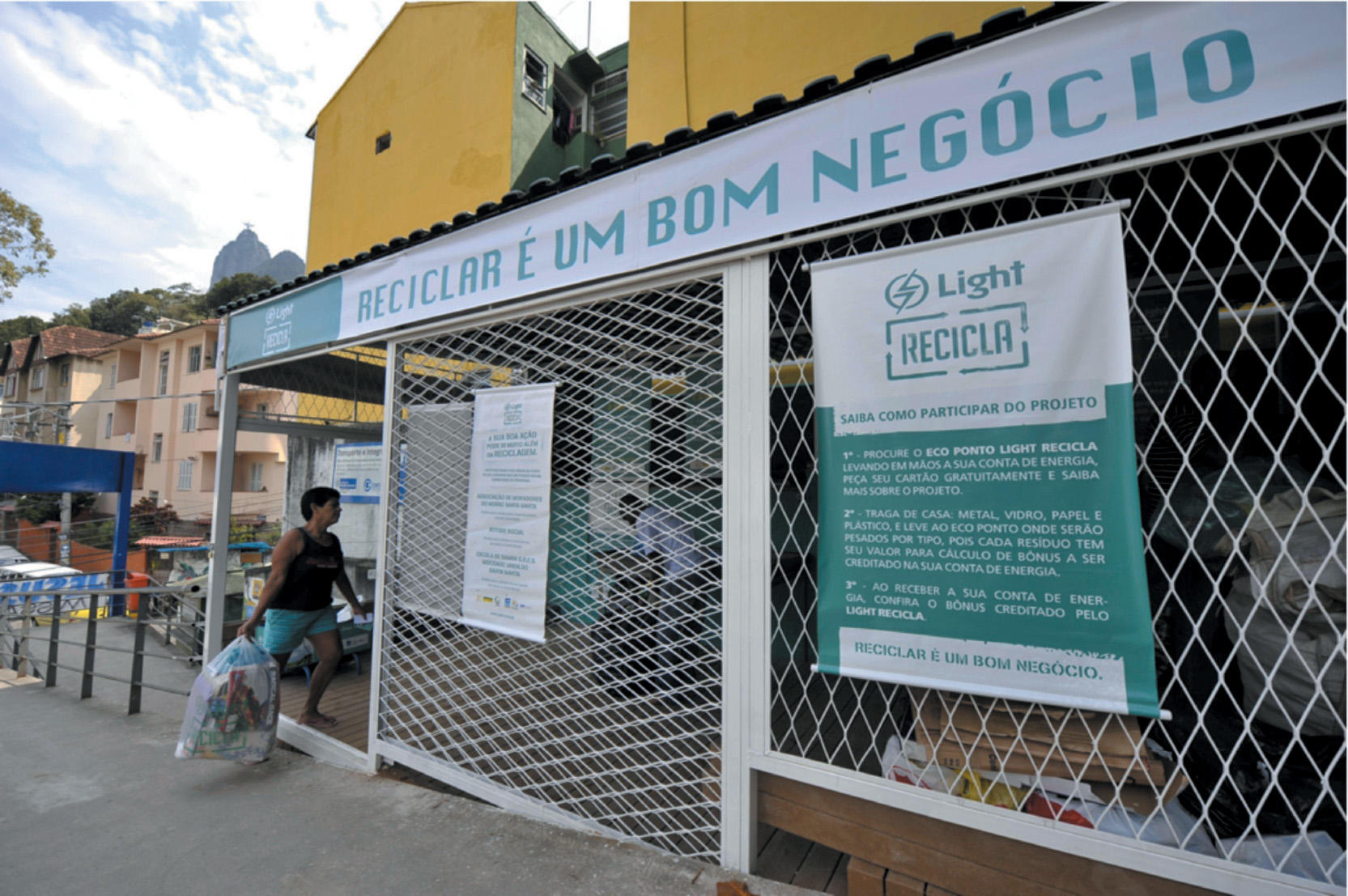
Cultural change and financial benefits in Rio de Janeiro, Brazil
Abstract: Launched in 2011 in Rio de Janeiro, "Light Recicla", an electricity access projet, provides a wide range of benefits to low-income communities. It was launched because regularized electrical connections and waste of "free" electricity made bills a financial burden. The project promoted bill payment, recycling, reduced consumption while generating income, encouraging financial education. We describe the project history from its inception to its potential during major events such as the Rio 2016 Olympics.
Keywords: Sustainability, electricity acess, inclusion, olympic games, light
Themes: Access to electricity of low income communities
► Energy Kiosks: offering electrical services as an alternative to electrification

Review of energy kiosk development projects
Abstract: The data analysis presented here is based on a study carried out in 2014 by Claudia Knobloch and Judith Hartl, from the research organization Endeva, titled "The energy kiosk model, Current challenges and future challenges", which collected data from 23 actors involved in developing the energy kiosk model.
Keywords: Energy kiosk
Themes: rural electrification
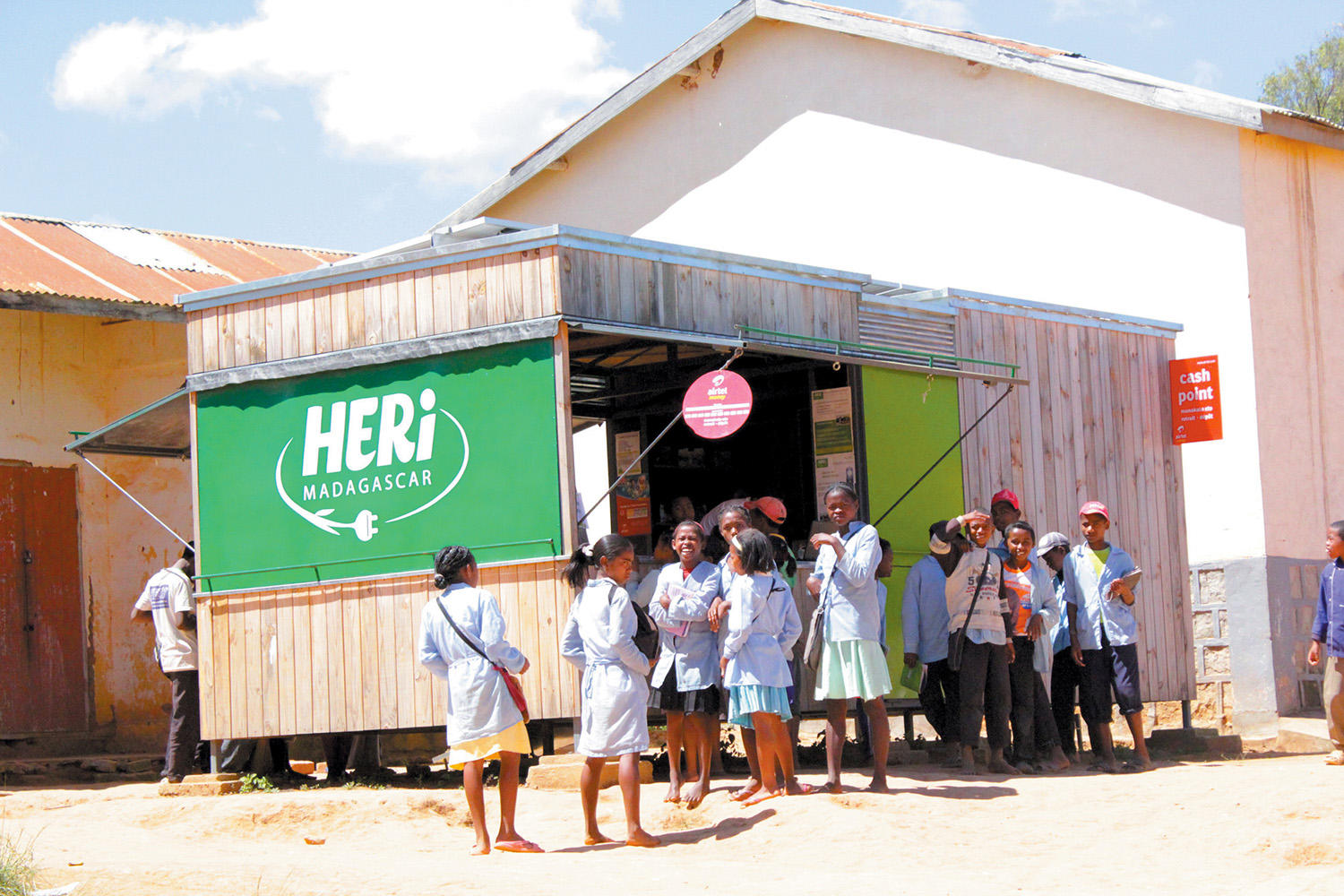
HERi Madagascar: upscaling the energy kiosk concept
Abstract: This article focuses on the experience of HERi Madagascar, a social entreprise that develops energy access solutions for the most vulnerable rural populations, through the implementation of a network of solar energy kiosks throughout the country. THe article discusses the lessons learned in the development of the business model in order to understand the challenges in upscaling the system.
Keywords : Solar energy kiosks, rural pre-electrification, franchise, female entrepreneurship, rural marketing
Themes : Access to energy and entrepreneurship
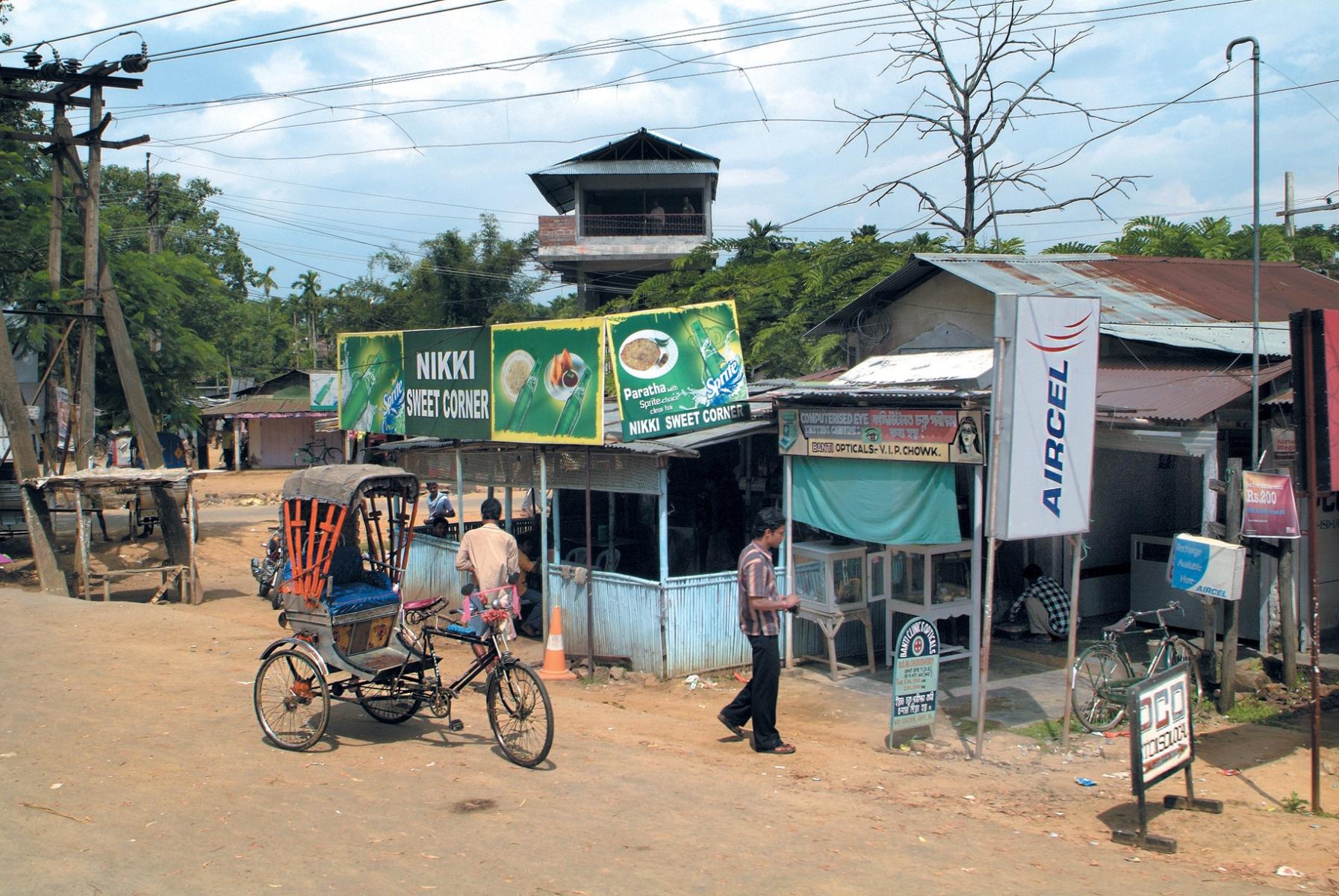
Addressing developmental needs through energy access in informal settlements
Abstract: Integrated Energy Centres, solar power community hubs for need based services, have been operationalised by SELCO Foundation for informal migrant communities in Karnataka, India since 2011. There are 26 IECs to date, offering 22 different services. Through the interventions, 6074 households have been impacted. The paper describes three different models through case studies illustrating their operational and financial aspects.
Keywords : Energy access, urban slums, solar, livelihoods
Themes : Access to energy in informal settlements
► Individual solutions: organizational issues affecting upscaling
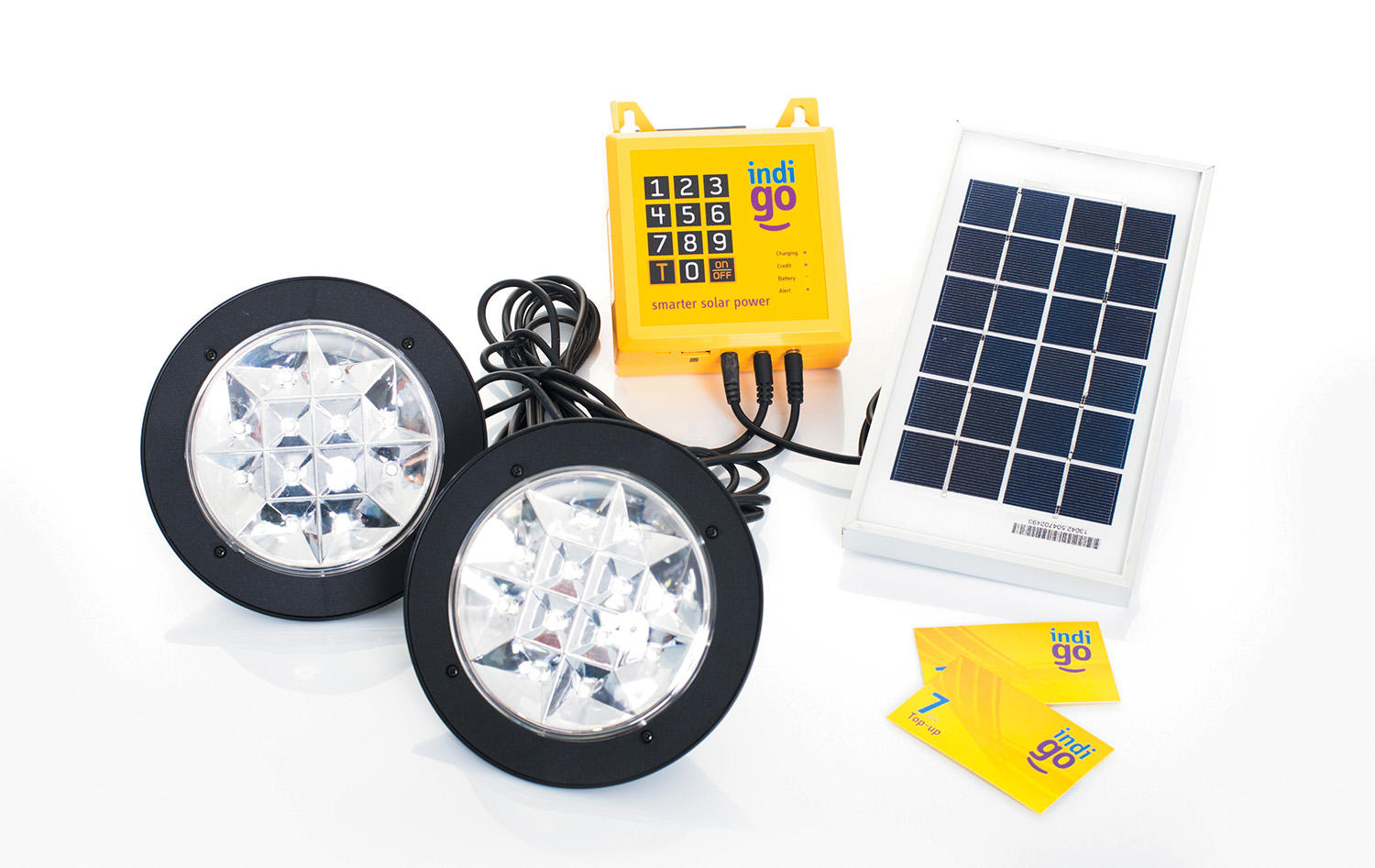
Pay-as-you-go solar PV in Rwanda: evidence of benefits to users and issues of affordability
Abstract : in 2013 Azuri Technologies, a provider of solar home systems, entered the Rwanda market with USAID support. During project implementation various distribution challenges were encountered and useful lessons learned. Impact studies were conducted which showed households using the Azuri systems benefited from significantly more hours of light and from the ability to charge phones at home. These households were among the wealthier segments of the rural population indicating affordability challenges for some households .
Keywords: Off-grid electrification, solar home systems, pay-as-you-go solar PV, Rwanda, energy for all
Themes: Affordability of Individual electricity solutions
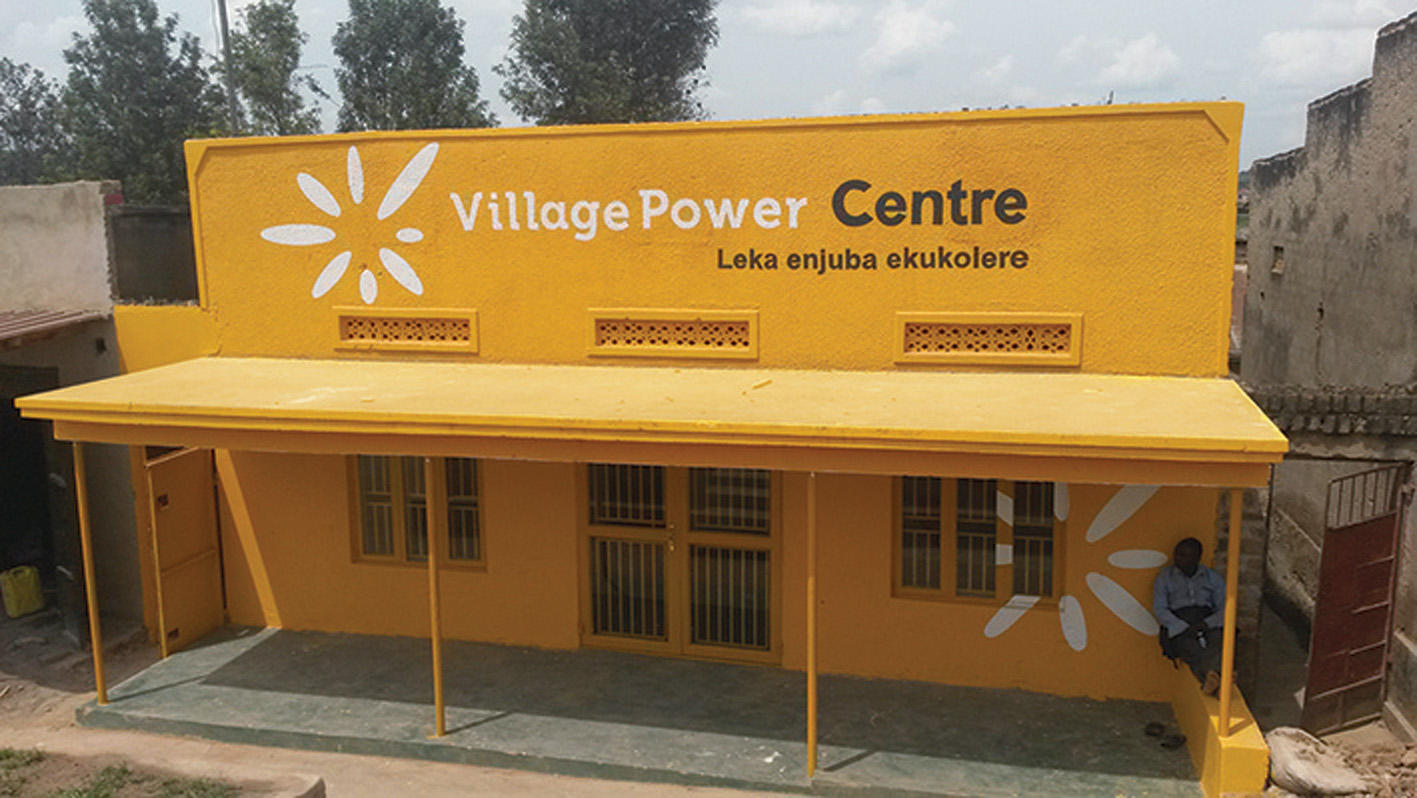
Village power: scaling rural electrification in Uganda
Abstract: This paper discusses Village Power's role in the Light Lwengo project in Uganda's Lwengo District. Key learnings from this project focus on the design and implementation of subsidy schemes and the implications of becoming a Pay-as-you-go provider to increase roll-out speed.
Keywords : Solar power, rural electrification, off-grid
Themes: Scaling access to individual solar electricity solutions
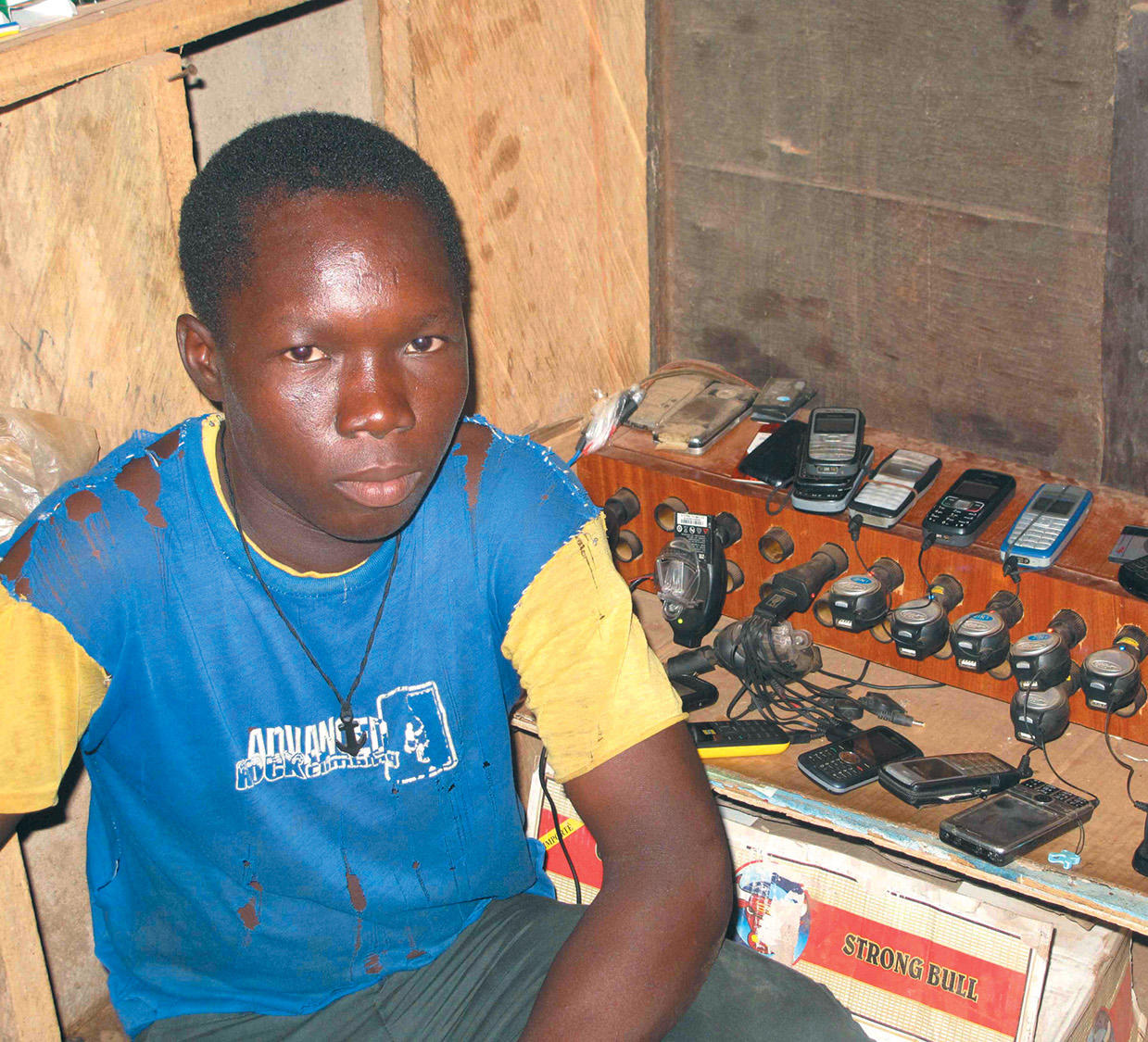
Solar microcredit, how to facilitate access to electricity in rural areas: an example in Burkina Faso
Abstract: This article presents the "Solar Microcredit in Burkina Faso" program of the Fondation Energies pour le Monde (Fondem), which enables electrification by solar kits through microfinance. This innovative program relies on pairing subsidies, covering 40 to 50% of the investment, and microcredit. It helps satisfy local demand by overcoming the barrier posed by the limited payment capabilities of rural and peri-urban customers.
Keywords: Microcredit, solar kit, electricity, Burkina Faso, Development
Themes: Financing access to electricity
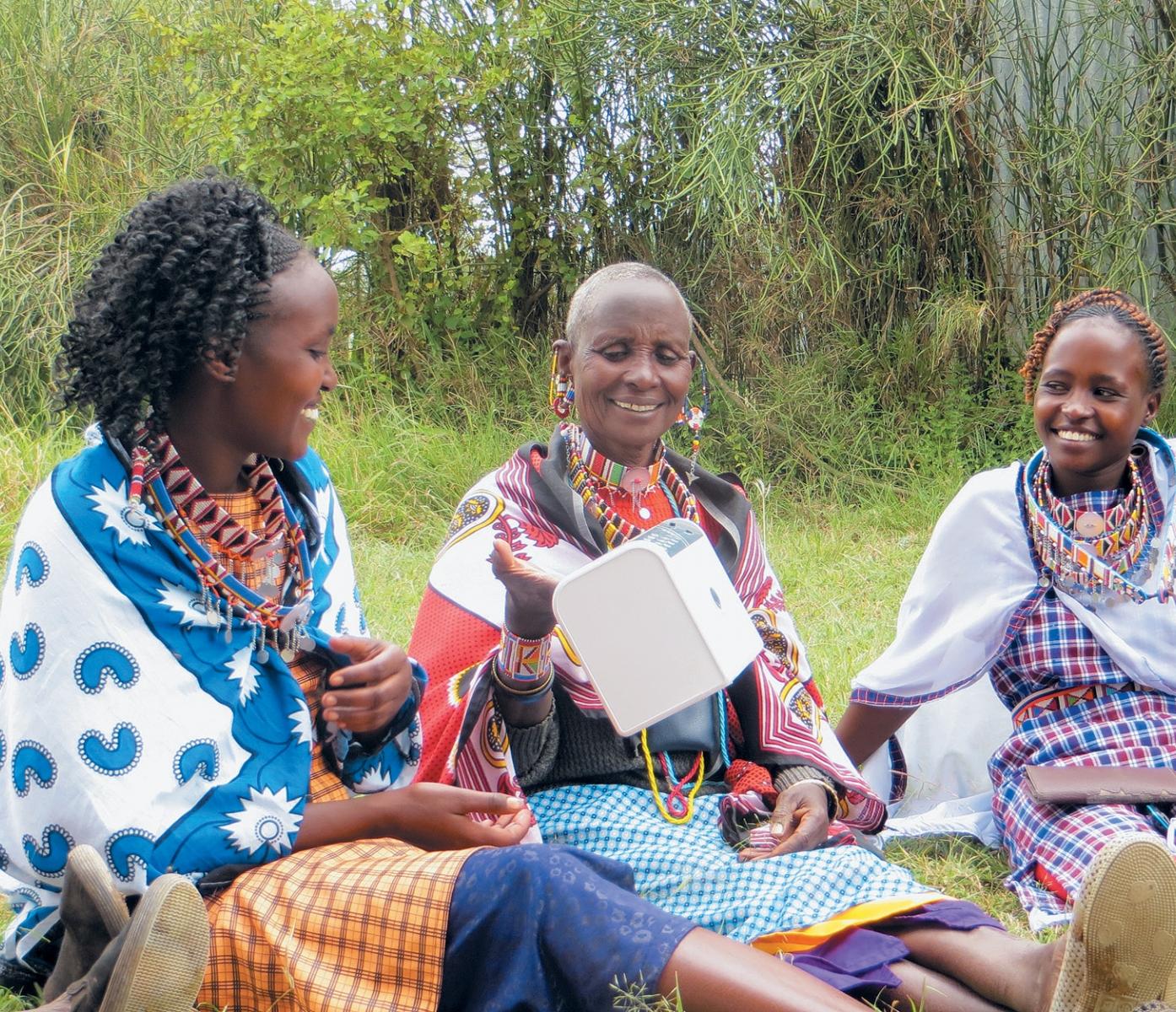
Solar loans through a partnership approach: lessons from Africa
Abstract: Lack of financial resources is a key barrier to access to energy in rural Africa. Since 2013, PAMIGA has been assisting rural financial institutions in developing Solar Loans to overcome this barrier. The approach chosen was that of a "two-hand" model, where a financial institution and a solar solution provider decide to partner. This article presents the rationale and features of the model, its first results, and the key challenges and lessons learned from its implementation in Cameroon, Ethiopia and Kenya.
Keywords: Solar energy, access to energy, microfinance, two-hand model, rural sub-Saharan Africa
Thématique : Microfinance and access to electricity
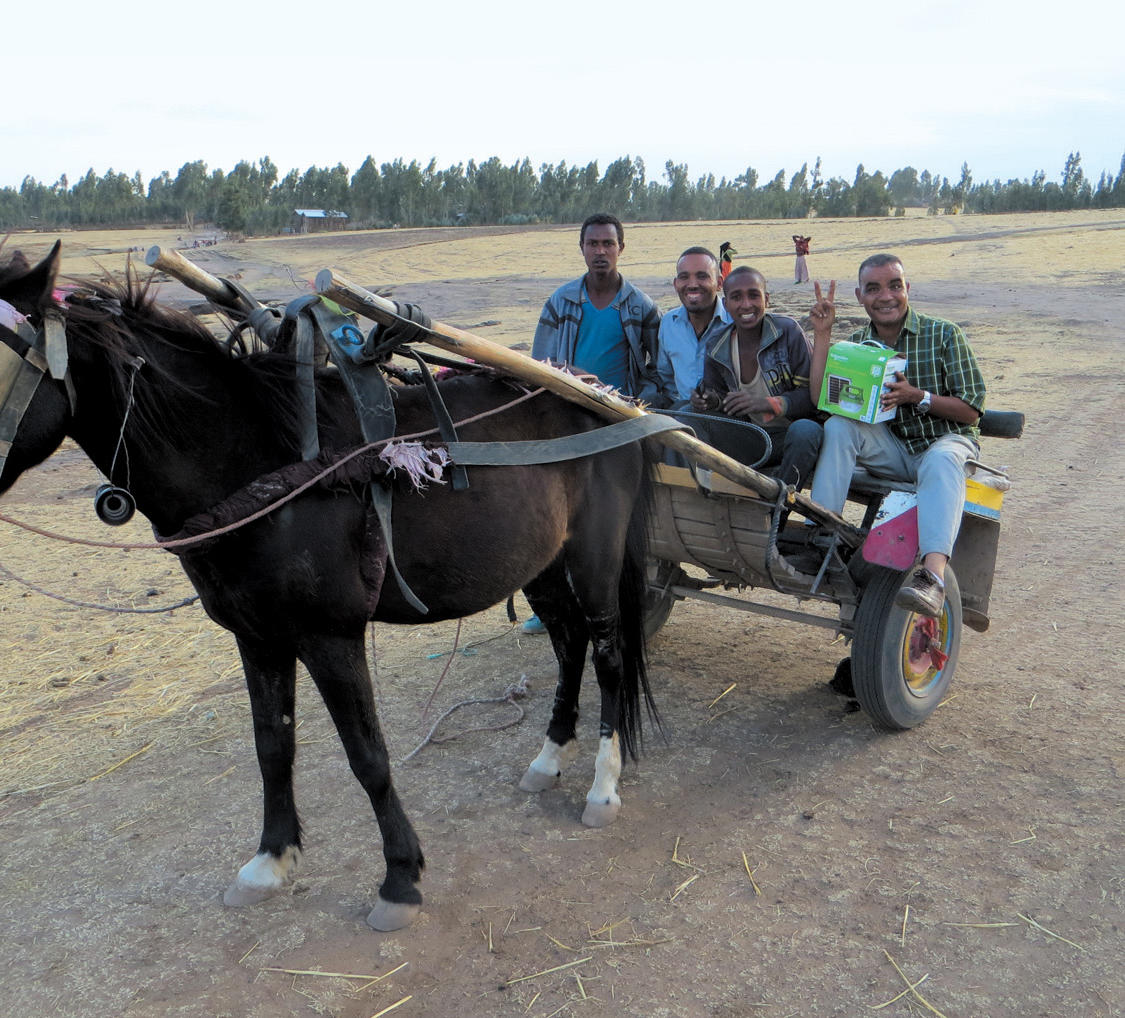
Energy Entrepreneurs: an innovative model to reach the last mile
Abstract: Today, reaching the last mile in remote rural areas remains a big challenge for many solar solution providers. Since 2014, PAMIGA has been testing a new model to bridge the gap between urban distributors and rural clients: the Energy Entrepreneur model. This article presents the unique features of the model, its first results and impacts, as well as the key challenges and lessons learned from its implementation in Cameroon and Ethiopia.
Keywords: Last mile, solar energy, access to energy, rural distribution, rural sub-Saharan Africa
Themes: Rural electrification
►Summary and review
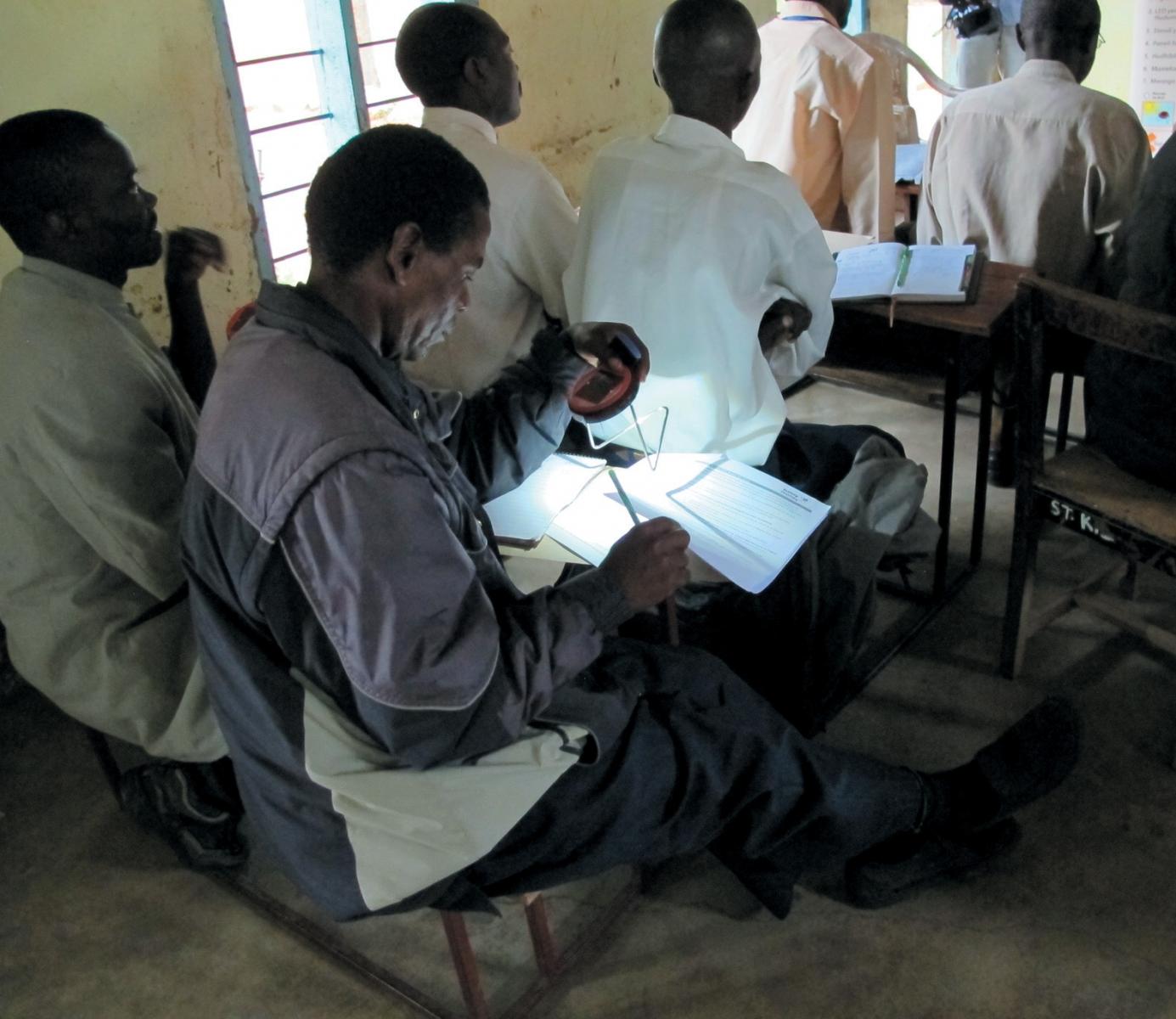
15 years of development in access to off-grid renewable electricity: insights from the Ashden Awards
Abstract: 379 organizations prioviding access to renewale electricity, who applied for Ashden Awards during the past 15 years, mostly used solar home systems and solar lamps. Trends found are that the number of applicants and the scale of their work have increased; East Africa has overtaken South Asia as the region with most applicants; and most applicants are now for-profit entreprises. Case studies of Ashden winners illustrate benefits and challenges.
Keywords : Access to electricity, mini-grid, hydro power, solar home systems, solar lamp, mobile money, pay-as-you-go solar
Themes: Access to renewable electricity
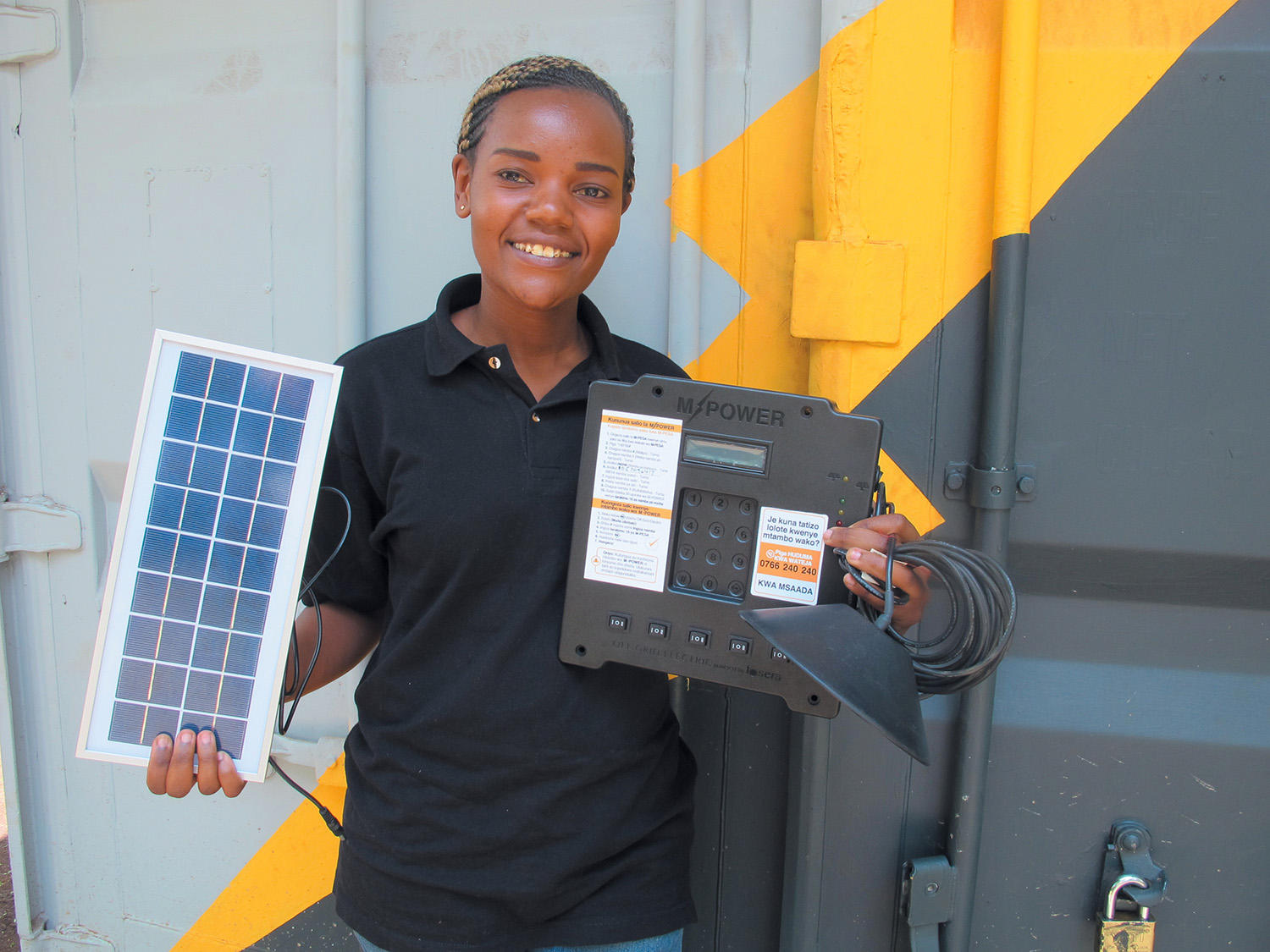
Solar off-grid markets in Africa, recent dynamics and the role of branded products
Abstract: The UN electricity for all initiative promotes branded solar products based on the argument that otherwise households won't have access to such technologies. We argue that non-branded products have already reached households; hence access is not an issue, at least for richer households. Yet, a justification of branded products can be made on their durability and thus reduced electronic waste. Subsidies can be paid to reach also the poor.
Keywords: rural electrification, energy access, energy poverty, technology adooption
Themes: Access to energy

